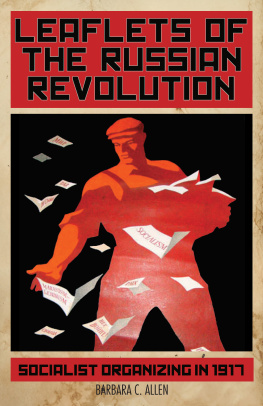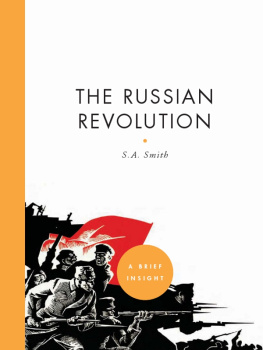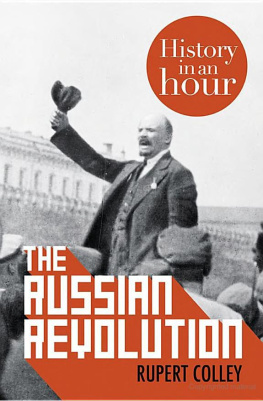Oakley C Johnson - Marxism in United States history before the Russian Revolution (1876-1917)
Here you can read online Oakley C Johnson - Marxism in United States history before the Russian Revolution (1876-1917) full text of the book (entire story) in english for free. Download pdf and epub, get meaning, cover and reviews about this ebook. year: 1974, publisher: Humanities Press, genre: Science / Politics. Description of the work, (preface) as well as reviews are available. Best literature library LitArk.com created for fans of good reading and offers a wide selection of genres:
Romance novel
Science fiction
Adventure
Detective
Science
History
Home and family
Prose
Art
Politics
Computer
Non-fiction
Religion
Business
Children
Humor
Choose a favorite category and find really read worthwhile books. Enjoy immersion in the world of imagination, feel the emotions of the characters or learn something new for yourself, make an fascinating discovery.
- Book:Marxism in United States history before the Russian Revolution (1876-1917)
- Author:
- Publisher:Humanities Press
- Genre:
- Year:1974
- Rating:3 / 5
- Favourites:Add to favourites
- Your mark:
- 60
- 1
- 2
- 3
- 4
- 5
Marxism in United States history before the Russian Revolution (1876-1917): summary, description and annotation
We offer to read an annotation, description, summary or preface (depends on what the author of the book "Marxism in United States history before the Russian Revolution (1876-1917)" wrote himself). If you haven't found the necessary information about the book — write in the comments, we will try to find it.
Oakley C Johnson: author's other books
Who wrote Marxism in United States history before the Russian Revolution (1876-1917)? Find out the surname, the name of the author of the book and a list of all author's works by series.
Marxism in United States history before the Russian Revolution (1876-1917) — read online for free the complete book (whole text) full work
Below is the text of the book, divided by pages. System saving the place of the last page read, allows you to conveniently read the book "Marxism in United States history before the Russian Revolution (1876-1917)" online for free, without having to search again every time where you left off. Put a bookmark, and you can go to the page where you finished reading at any time.
Font size:
Interval:
Bookmark:

In
United States History
Before the Russian Revolution
(1876-1917)
Oakley C. Johnson
Copyright 1974 by
Oakley C. Johnson
Library of Congress Cataloging in Publication Data
Johnson, Oakley C 1890-
Marxism in United States history before the Russian Revolution (1876-1917)
(AIMS historical series, no. 9)
Bibliography: p.
1. Socialism in the United States-History.
I. Title. II. Series: American Institute for Marxist Studies. AIMS historical series, no. 9.
HX83.J64 335.40973 73-13902
ISBN 0-391-00326-7
Printed in the United States of America
To Mary O. & Mary Lea
The more than twelve years of work I have put in on this book might have ended in nothing, had not Herbert Aptheker taken over the labor of editing. What seems likely to be my final illness-centering in a damaged heart prevents further active library research. Dr. Aptheker not only undertook editing, but also suggested the re-writing of one chapter, the expansion of another, and caught various errors. Without his encouragement and supervision, I would have been helpless.
Previously, most of my research was done at three libraries, and I want to thank each one by name: First, the Tamiment Library, now owned by New York University, but originally the library founded by Alexander Trachtenberg at the Rand School of Social Science, and still located at Seven East Fifteenth Street, New York City. Its chief librarian, Dorothy Swanson, knew everything and unearthed everything that 1 asked for. Second, the Labadie Collection, founded by my old friend, Jo Labadie, the gentle anarchist, through his gift of books and papers to the University of Michigan Library, Ann Arbor, Michigan, while I was still a student there. Its curator, Edward Weber, helped me immeasurably, not only while I worked there in the Summer of 1966, but by mail in the intervening years. Third, the New York Public Library, which has an astonishing accumulation of pamphlets and papers, a considerable number of which were gifts, years ago, from Friedrich Adolph Sorge, last secretary of the First International. The Library also has, to serve its vast public, a staff of kindly and efficient workers.
The entire list of people to whom I am grateful is far too long to insert here, but I must mention Gibby Needleman, my lawyer in these days; and, most of all, my wife, Mary Lea Johnson, and my daughters, Nancy and Priscilla, for faithful and I fear unrequited backing throughout.
Oakley C. Johnson
December, 1972
In this book I seek to answer the question: What was the role of Marxism in this country before any socialist state existed, when Socialism was only a theory and a hope?
I do not want to exaggerate, for it is obvious that Marxism was not dominant here, otherwise we would already have socialism. Rather, my thesis is that Marxism, although a minor factor in our history, was nonetheless a significant one, worth studying and evaluating. Furthermore, it was in every instance an influence on the side of progress.
I am using a compartmentalized approach, trying to measure the impact of Marxism on our politics, trade unions, art and literature, on such movements as that for woman suffrage and for full Negro freedom, on the churches, on reform legislation, on general culture and social ideals. I am also attempting to indicate the extent of Marxist influence on various segments of the population and in the farthest stretches of United States territory.
The introductory chapter on Karl Marx pictures his important personal influence here before, during and after the Civil War, and the writings by him which first received publication in the United States. From then on, the book traces the organized socialist movement. It deals with the achievements and aspirations of the Workingmens Party of the United States, which became the Socialist Labor Party, from 1876 onwards, of the Socialist Party from 1900 onwards, of the many trade unions with socialist leadership. The chapter on legislation indicates how Marxist influence was important in securing labor and social reforms and political freedoms. The chapter on the church takes up the fascinating story of Christian ministers like George D. Herron, Charles H. Vail, Bouck White, Bishop Franklin Spencer Spalding, Bishop William Montgomery Brown, and Albert Rhys Williams. In literature and art, similarly. And so with the other sections; documented.
The impact of Marxism upon immigrant groups, prior to 1917, was considerable. This was notably true among Spanish-speaking, Slavic, Finnish, Germanic and Jewish peoples. Some indication of this appears in the Pages that follow; actually, however, this is a story that requires and merits though it does not yet have-a book all its own.
At the close I have a brief epilogue on the growth of these Marxist roots into the international Marxism-Leninism that followed.
and the United States
Karl Marx died in 1883, and his friend and collaborator Frederick Engels spoke the farewell words at his grave: On the afternoon of the 14th of March at a quarter to three, Engels began, the greatest living thinker ceased to think.
In this address, Engels summed up what Marx meant for mankind. It contained high praise for the founder of scientific socialism, but not too high for that time, nor for ours. Two billion people today revere Marxs name, and honor his achievements.
Three times in this brief speech Engels connected Marx with the United States. He said the death of Marx was a loss to the fighting European and American proletariat and we recall, as we read, that the workers of this country were indeed fighting in the 1880s for the eight-hour day. Engels referred next to Marxs great journalistic contributions, beginning with the first Rheinische Zeitung in 1842 and ending with the New York Tribune from 1852 to 1861. In his conclusion Engels again spoke of the workers loss: Marx, he said, was loved and mourned by millions of revolutionary workers from the Siberian mines over Europe and America to the coasts of California.
Marx did take an active interest in the United States. It is not too much to say that, next to Germany, where he was born, and England, in which he lived most of his life and where he is buried, his greatest attention all his adult life was given to this country.
When he was twenty-six years old, and still defining and developing his philosophic views and methods, he made a notable statement in a polemic about social questions against a now-forgotten writer named Karl Heinzen. The subject of the polemic is not important here, but the heart of it was that Heinzen thought Communists were narrow-minded for continuing their struggle against the bourgeoisie even after the overthrow of the monarchy, as in France. Why, he asked, in effect, did Marx and Engels attack the kind German capitalists!
Writing in Vorwarts (1844), a German paper published in Paris, Marx stated in the course of his remarks: Socialism and Communism did not originate in Germany, but in England, France and North America. The first appearance of a really active Communist Party may be placed within the period of the bourgeois revolution, at the moment when constitutional monarchy was abolished.
What did Marx mean by listing North America as a place where communism originated? This was four years before he and Engels wrote the Communist Manifesto. It is clear that Marx was not yet thinking of modern or scientific socialism. He was thinking of the communism of the Utopians, who did in fact originate the idea of socialization of property in the hope of solving the problems of poverty and crime. Claude St. Simon, philosopher, and Francois Fourier, sociologist, in France and Robert Owen, manufacturer and philanthropist, in England, were the originators of this early socialist theory, and the plans outlined by both Fourier and Owen were extensively tried out in the United States. Marx was right in thus singling out the three countries, including our own, as the homelands of elementary socialist theory.
Font size:
Interval:
Bookmark:
Similar books «Marxism in United States history before the Russian Revolution (1876-1917)»
Look at similar books to Marxism in United States history before the Russian Revolution (1876-1917). We have selected literature similar in name and meaning in the hope of providing readers with more options to find new, interesting, not yet read works.
Discussion, reviews of the book Marxism in United States history before the Russian Revolution (1876-1917) and just readers' own opinions. Leave your comments, write what you think about the work, its meaning or the main characters. Specify what exactly you liked and what you didn't like, and why you think so.











